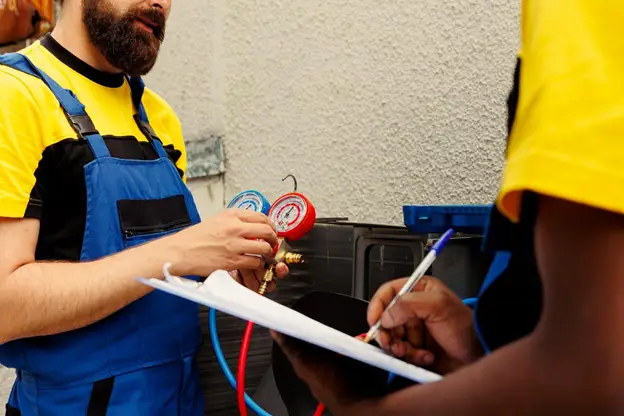Around the world, billions of people still lack access to safe drinking water, especially in remote and difficult-to-reach communities. Several Christian water charity organizations focus on bringing clean water to these areas, combining practical help with a message of hope. Groups such as Neverthirst, Lifewater International, Water Mission, Samaritan’s Purse, and Water for Good are actively providing sustainable solutions like wells, filters, and rainwater harvesting in Africa and Asia. By supporting water donations, you can play a role in ensuring these life-saving resources reach those in need.
These organizations work alongside local partners and churches, ensuring that clean water projects are long-lasting and community-driven. Their outreach not only improves health outcomes but also fosters meaningful connections and transformation that go beyond meeting physical needs.
Key Takeaways
- Christian organizations are addressing water needs in remote regions.
- These charities emphasize both sustainable solutions and local partnerships.
- Clean water access creates physical and spiritual impact.
Leading Christian Charities Bringing Clean Water to Hard-to-Reach Areas
Christian charities use technical expertise and local partnerships to ensure safe water reaches communities in remote or unstable regions. These organizations align their efforts with social welfare goals and prioritize basic human rights to clean water.
Key Organizations and Their Missions
Several Christian groups focus directly on expanding water access in hard-to-reach and marginalized areas. Water Mission is an engineering nonprofit that designs sustainable water solutions for disaster zones and remote communities. Lifewater International centers its work on children and women, prioritizing hygiene and sanitation as essential components of their mission.
Samaritan’s Purse brings clean water to vulnerable and conflict-impacted populations while sharing faith-based support. Water for Good aims to provide lasting water access in sub-Saharan Africa, supporting both infrastructure and hygiene education. Other organizations, such as Cross Catholic Outreach and Generosity.org, implement community water systems and construct wells in regions with limited access.
Many of these organizations base their work on a respect for human rights and social welfare, recognizing that clean water is fundamental to health and dignity.
Approaches to Overcoming Geographic and Political Barriers
Christian water charities use specific strategies to work in areas often overlooked by traditional aid efforts. Technical innovation—like solar-powered pumps and gravity-fed filtration systems—makes it possible to provide safe water in geographically isolated villages and drought-prone landscapes.
These groups often have longstanding local relationships, allowing them to operate where instability or political challenges might block outside intervention. Many charities partner with local faith leaders, which helps build trust in sensitive regions.
Coordination with international agencies such as the World Health Organization also supports these initiatives. Adhering to recognized water quality standards ensures solutions are both effective and safe for community health.
Collaboration With Local Communities
Direct engagement with local community members shapes the success of water projects. Charities train residents in system maintenance and basic repair, building skills that ensure the sustainability of new infrastructure. Educational components—like hygiene workshops and safe water handling—are core to most projects.
Many Christian organizations empower community leaders to manage water resources, ensuring a sense of ownership. Feedback from community members shapes ongoing support and future improvements.
Strong community partnerships reduce barriers to access, improve adoption rates, and help align clean water efforts with broader social welfare and human rights goals.
Challenges and Broader Impact of Christian Water Initiatives
Efforts to expand clean water access face a range of challenges in hard-to-reach areas, from protecting human rights to building long-term solutions. The broader impact of these initiatives connects to civil society, international cooperation, and sustained health improvements.
Promoting Civil Rights and Human Dignity Through Water Access
Access to clean water is closely linked to basic civil rights and human dignity. When safe water is provided, you help support key human rights recognized by international frameworks and many national constitutions.
Christian charities emphasize the inherent value of each person, often working in regions where marginalized communities have long been denied basic infrastructure. Clean water enables children to attend school rather than walking long distances, and reduces the burden on women, promoting gender equity.
A lack of water often results in the spread of waterborne diseases, which are classified under the International Classification of Diseases (ICD). By addressing these health risks, you directly improve the standard of living and uphold the dignity of vulnerable populations.
Role of International Standards and Partnerships
Christian water initiatives do not work alone. Many organizations develop projects that align with international standards and guidelines, such as those provided by the World Health Organization for water quality or UNICEF’s protocols for hygiene in schools.
Collaborative partnerships are essential. You frequently see Christian charities working hand-in-hand with local governments, non-governmental organizations, and community leaders. This ensures projects are accepted locally and integrated within broader health and civil society systems.
Complexity grows in politically unstable or remote regions. Here, international collaboration can bring resources, technical expertise, and accountability, which lead to more durable solutions and wider positive effects on democracy and community participation.
Sustaining Access to Safe Water Over Time
Delivering initial access to clean water is critical, but maintaining it requires consistent support and planning. Christian charities often implement training programs for local technicians so that wells, filters, or rainwater harvesting systems remain functional after the initial installation.
You may also see investments in community education to promote sanitation and hygiene, ensuring that clean water sources are not contaminated and remain reliable. Funding, monitoring, and regular evaluation are vital for addressing issues as they arise.
Long-term sustainability depends on empowering local communities and building local ownership of water resources. Without such structures, initial gains can fade, risking the loss of both health improvements and advances in civil rights.
Conclusion
When you look for Christian charities focused on clean water in hard-to-reach areas, you find organizations with proven strategies, transparent goals, and a commitment to sustainable solutions. These charities often partner with local communities, providing wells, rainwater systems, and ongoing education.
Your support helps expand their impact and ensures more people have access to safe water. By learning about these organizations, you become part of a network making lasting change possible.





